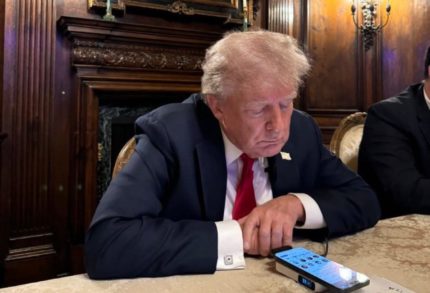Former President Donald Trump has outlined a controversial proposal to dismantle the U.S. Department of Education, a move that has sparked significant debate. During a recent appearance on the social media platform X, Trump discussed his vision to decentralize education by shifting control from the federal level to individual states. The proposal has garnered strong support from the evangelical Christian right, who see it as a way to promote local values and reduce federal oversight in education.
Donald Trump, however, acknowledged potential challenges with this approach. He noted that while some states might struggle initially under the new system, they would be “forced to do better” due to the competitive pressure. “If you moved education back to the 50 [states], you’ll have some that won’t do well. But they’ll actually be forced to do better, because it’ll be a pretty bad situation,” Trump admitted. His remarks highlight the risks involved in such a drastic shift in education policy, particularly the possibility of increased disparities in educational outcomes across the country.
Kamala Harris Campaign Criticizes Donald Trump’s Education Plan
The campaign for Vice President Kamala Harris swiftly responded to Donald Trump’s remarks, amplifying the discussion across social media platforms. Harris’s team has strategically connected Trump’s proposal to the broader conservative agenda, particularly the policy framework outlined in Project 2025. By highlighting this connection, the Harris campaign aims to portray Trump’s plan as part of a larger effort to roll back federal involvement in key areas, including education.
Harris’s campaign has been vocal about the potential risks of Trump’s proposal, emphasizing that devolving educational control to the states could lead to increased inequality. The campaign argues that states with fewer resources or weaker educational infrastructures could fall further behind, exacerbating existing disparities. By drawing attention to these concerns, the Harris team seeks to galvanize opposition to Trump’s plan and highlight the stakes involved in the 2024 election.
Technical Issues Mar Trump’s Interview on X
Donald Trump’s interview, which was conducted by billionaire CEO Elon Musk on the platform X, was intended to be a major event but was significantly disrupted by technical difficulties. Shortly after the livestream began, the platform was hit by a massive Distributed Denial of Service (DDoS) attack, causing widespread access issues for viewers. Many users reported seeing messages like “this space is not available” or experiencing greyed-out screens that prevented them from participating in the event.
The technical problems quickly became a trending topic on X, with hashtags like “#TwitterBlackout” gaining traction as frustrated users expressed their inability to watch the interview. Despite these issues, Trump was able to share details about a recent assassination attempt he survived at a Pennsylvania rally, describing the experience as “surreal” but also “very real” as a bullet grazed his ear. Musk later confirmed the DDoS attack and noted that the platform had to scale down the live audience as a result, further complicating the event
Donald Trump’s Plan to Abolish the Department of Education Sparks Controversy
Donald Trump has recently unveiled a bold plan to abolish the U.S. Department of Education, transferring educational decision-making power to individual states. This move has ignited a fiery debate, with supporters praising it as a step towards empowering local communities, while critics warn of dire consequences for the nation’s educational standards and equality.
Trump’s announcement comes as part of his broader agenda to decentralize federal control and return power to state governments. Proponents argue that by allowing states to design their own curricula, education can be more closely aligned with the cultural and political values of local populations. For instance, states with Democratic majorities might prioritize inclusivity and progressive values, while Republican-leaning states could focus on traditional American principles and conservative ideologies. However, this shift has also raised concerns about the potential for educational disparities, particularly in poorer states and school districts that heavily rely on federal funding to maintain their programs.
Mixed Reactions Highlight Concerns Over Educational Inequality
The response to Donald Trump’s proposal has been mixed, reflecting the deeply polarized nature of American politics. Some education experts and political commentators fear that abolishing the Department of Education could exacerbate existing inequalities. Zack, an education analyst, emphasized that poorer states and their educational institutions might struggle to provide quality education without the financial support currently provided by the federal government. This could lead to a scenario where students in wealthier states receive a superior education, while those in less affluent areas are left behind.
Critics also argue that the lack of federal standardization would create challenges for students and job seekers who move between states. Without a national curriculum, educational qualifications could vary significantly from one state to another, making it difficult for employers to assess candidates’ competencies. Firefox, a commentator on the issue, raised the alarm that such a system would be detrimental to students’ mobility and future career prospects.
On the other hand, some voices, like parody handle, commend Donald Trump’s plan as a necessary step towards making America great again, arguing that localizing education decisions will lead to a more tailored and effective educational system. However, Jawabi, another commentator, cautioned that while centralizing education decisions at the state level might empower local communities, it is crucial to prevent this move from leading to increased inequality and a lack of cohesive national standards.














